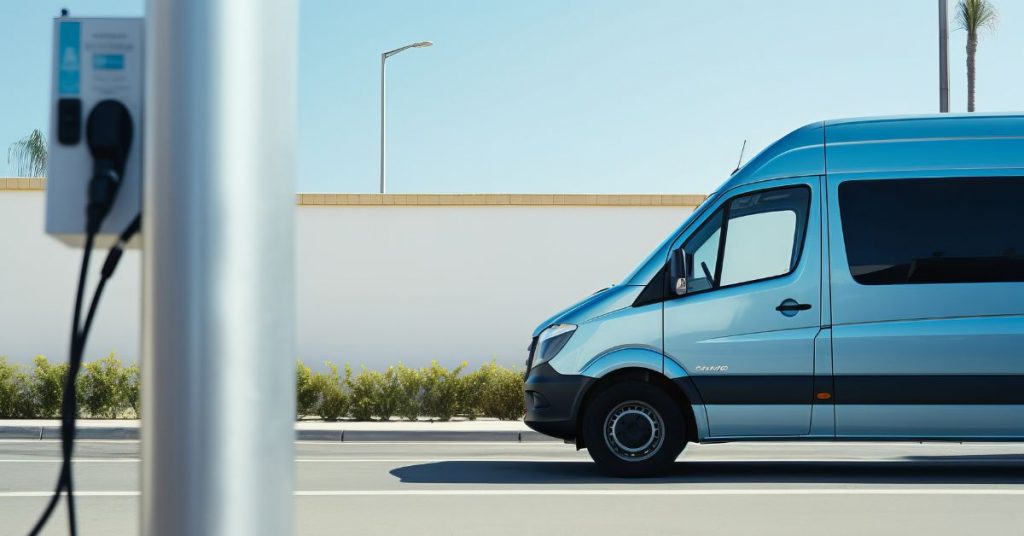
The increasing prevalence of electric vehicles in urban areas is transforming transportation and driving the need for innovative solutions. Smart city initiatives are at the forefront of this transformation, aiming to create connected, efficient, and sustainable urban environments.
Integrating EV charging infrastructure into the smart city ecosystem is crucial for realising this vision — with recent research by Intel suggesting that the global market for commercial chargers is set to grow by 35% year on year through 2028.
Ultimately, the future of the sector is about flexibility and convenience, and alongside large-scale public sector-led infrastructure development, commercial EV chargers have an important role to play in shaping urban mobility and driving economic growth.
Working together on the challenges of urban EV charging
Upgrading existing infrastructure and implementing smart grid technologies is crucial to handling the increased electricity demand from EVs. Effective collaboration between city planners, utility companies, and private sector businesses is essential to navigate these complexities and ensure the successful integration of urban EV charging — a model already being explored by the US Federal Highway Administration to close coverage gaps.
Private sector involvement will play a crucial role in accelerating the development of infrastructure — from research and development to driving innovation in charging technologies and improving charging speeds. Commercial charging providers can leverage their expertise in user experience to develop more convenient and accessible charging solutions. And private investment can supplement public funding, accelerating the deployment of charging networks and expanding coverage.
This type of collaborative approach considering both public and private sector interests can streamline planning processes, facilitate infrastructure upgrades, and ensure that charging solutions meet the evolving needs of a city.
Optimising urban mobility with smart charging
Smart charging technologies are essential for optimising energy use and maintaining grid stability in urban environments — making use of emerging AI capabilities and leveraging real-time data and analytics to manage charging demand, preventing grid overload and ensuring efficient energy distribution.
For example, dynamic pricing models based on demand are already used to incentivise EV owners to use their home chargers during off-peak hours when the power grid is under less stress. For commercial charging providers, the same type of flexible pricing can be used to drive business during quieter periods — attracting customers with cheaper time-based tariffs to spread out demand for services more evenly.
These types of strategies, enabled by smart technology, can increase revenue and improve the overall return on investment in charging infrastructure — as well as contribute to a more stable and efficient energy grid, benefiting both the provider and the wider community.
Enhancing the citizen experience through EV charging
Having access to convenient EV charging infrastructure significantly improves the quality of life for residents, especially as the proportion of electric vehicles on the road continues to grow.
Commercial EV charging has an important role to play here — providing additional charging capacity without the need for major overhauls of city infrastructure. For example, businesses with existing parking facilities can add commercial EV charging points relatively easily, which increases the available network while reducing the need for additional on-street chargers.
Driving economic growth and sustainability
Commercial EV charging offers enormous potential to create new business opportunities and stimulate economic growth in cities — with investments in charging infrastructure creating new jobs in manufacturing, installation, and maintenance. At a local level, businesses installing commercial chargers to serve the needs of their employees or customers can maximise the return on their infrastructure investment and open up new revenue streams by offering paid charging services to the general public.
From an environmental point of view, the benefits of improved commercial EV charging networks are clear, contributing to cleaner air, reduced greenhouse gas emissions, and a healthier urban environment. Greater adoption of electric vehicles, supported by improved access to EV charging will play a critical role in achieving sustainable transportation goals, reducing reliance on fossil fuels and promoting a cleaner energy future.
The future of EV charging in smart cities
As in so many sectors, the future of EV charging looks set to be defined by intelligent automation. Artificial intelligence and machine learning systems will play an increasingly important role in optimising charging infrastructure, predicting demand, and managing energy distribution. Autonomous vehicles with wireless charging capabilities, which can independently seek out and use public or commercial EV chargers when needed have the potential to further enhance convenience and efficiency for end users.
Better integration of EV charging with smart grids and renewable energy sources will create a more sustainable and resilient energy ecosystem, with vehicle-to-grid (or bidirectional) charging emerging as a solution to more flexible large-scale energy management. This allows EVs to contribute electrical power back to the grid when not in use, acting as an energy reservoir to boost power availability when needed.
Powering the smart cities of tomorrow
Commercial EV chargers are essential for the development of smart cities, shaping urban mobility, driving economic growth, and promoting sustainability. To achieve this connected future, collaboration between city planners, businesses, technology providers, and residents is crucial in order to create a seamless and sustainable EV charging ecosystem.
Businesses that are early to adopt commercial EV charging will be best positioned to take advantage of these emerging opportunities — and working with an established global technology partner like Humax offers a competitive advantage. To discover more about the benefits commercial EV chargers could bring to your business, contact one of our consultants today.


